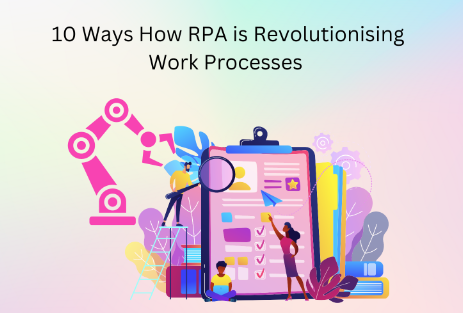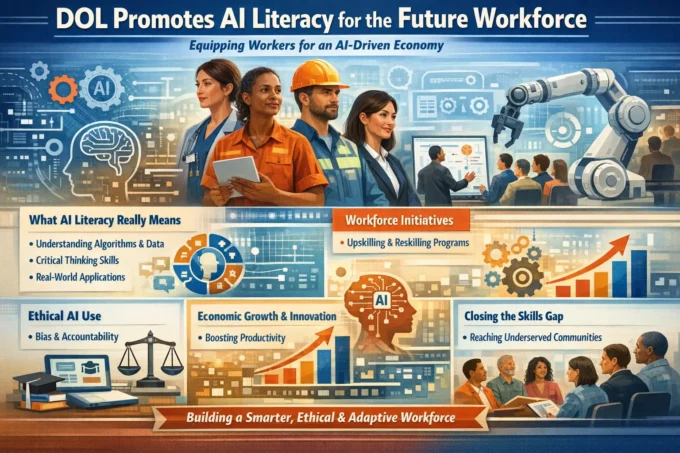Robotic Process Automation (RPA) is an approach that automates repetitive, rule-based operations in business processes using software robots, or “bots”. By mimicking human interactions with computer systems, these bots enable the automation of repetitive and time-consuming tasks. In this blog, we’ll go through What is RPA and list ten ways RPA transforms work processes.
To fully realise the promise of RPA, individuals and organisations must get Robotic Automation Process Training. Users who complete this extensive training programme will have the necessary abilities for designing, implementing, and managing automated processes. Through this training, people can smoothly incorporate RPA into their workflows, guaranteeing maximum effectiveness and optimising the advantages of this innovative technology.
Table of contents
- Enhanced Efficiency and Accuracy
- Time savings
- Cost Reduction
- Improved Compliance
- Increased Scalability
- Enhanced Customer Experience
- Streamlined Communication
- 24/7 Availability
- Data Accuracy and Analytics
- Flexibility and Adaptability
- Conclusion
Enhanced Efficiency and Accuracy
RPA removes the possibility of human error in repetitive activities. Robots can carry out repetitive tasks with accuracy and consistency, which lowers the possibility of errors and improves accuracy overall. This increases productivity while also fostering trust in the dependability of automated procedures.
Time savings
By automating monotonous jobs, employees may concentrate on higher-value work. This saves a lot of time, which helps organisations strategically reallocate resources and boost output all around. The extra time that is regained allows workers to work on creative projects, which encourages an innovative work environment.
Cost Reduction
Organisations can save a lot of money by automating processes that would otherwise need human interaction. Over time, RPA maximises ROI, lowers operational costs, and minimises labour expenditure. In addition to increasing profitability, these cost-cutting measures free up funds for calculated risks and company expansion projects.
Improved Compliance
RPA ensures that compliance rules and regulations are strictly followed. Because bots can apply specified rules consistently, there is less chance of noncompliance and the consequences that come with it. In addition to reducing legal risks, this dedication to compliance enhances the company’s standing for moral corporate conduct.
Increased Scalability
RPA helps businesses grow without raising labour expenses in line with the size of the operation. Increased workloads are easily managed by bots, enabling companies to adjust smoothly to shifting demands. To remain competitive and flexible in ever-changing marketplaces, RPA’s scalability is essential.
Enhanced Customer Experience
RPA helps companies enhance customer satisfaction and response times by automating customer-facing tasks like order processing and data entry. Consequently, this enhances consumer interactions and fosters loyalty. Enhancing the customer experience can give a business a competitive edge by impacting long-term connections and brand perception.
Streamlined Communication
RPA automates data integration and transfer, allowing for smooth communication across heterogeneous systems. This reduces delays and bottlenecks by ensuring that information moves freely throughout the company. Simplified communication encourages teamwork and productivity, which builds a cohesive workplace.
24/7 Availability
Because bots are always available, they can quickly and continuously complete tasks, unlike human workers who need breaks and downtime. This continuous accessibility is especially beneficial for companies that operate internationally. Being accessible 24/7 guarantees timely work completion, which boosts operational effectiveness and competitiveness internationally.
Data Accuracy and Analytics
RPA collects and analyses data to produce insightful insights and guarantee accurate data processing. Based on trustworthy, up-to-date information, organisations can make well-informed judgements. Informed decision-making is aided by accurate data, forming the basis for sophisticated analytics that propel important corporate endeavours.
Flexibility and Adaptability
RPA systems are very flexible and can be readily tailored to match the unique requirements of various enterprises and industries. Because of this adaptability, businesses can react quickly to shifting market conditions and changing needs. RPA’s adaptability enables businesses to remain responsive and flexible in changing market conditions.
Conclusion
Using RPA technology and providing thorough training on robotic automation procedures propels businesses into a world of unmatched precision, efficiency, and scalability. RPA adoption is becoming more than simply a fad; for businesses looking to succeed in the digital era, it is a strategic need. Amid the continuing changes in the industry, those skilled at utilising the entire range of RPA’s capabilities are well-positioned to lead in terms of success and innovation.















Leave a comment